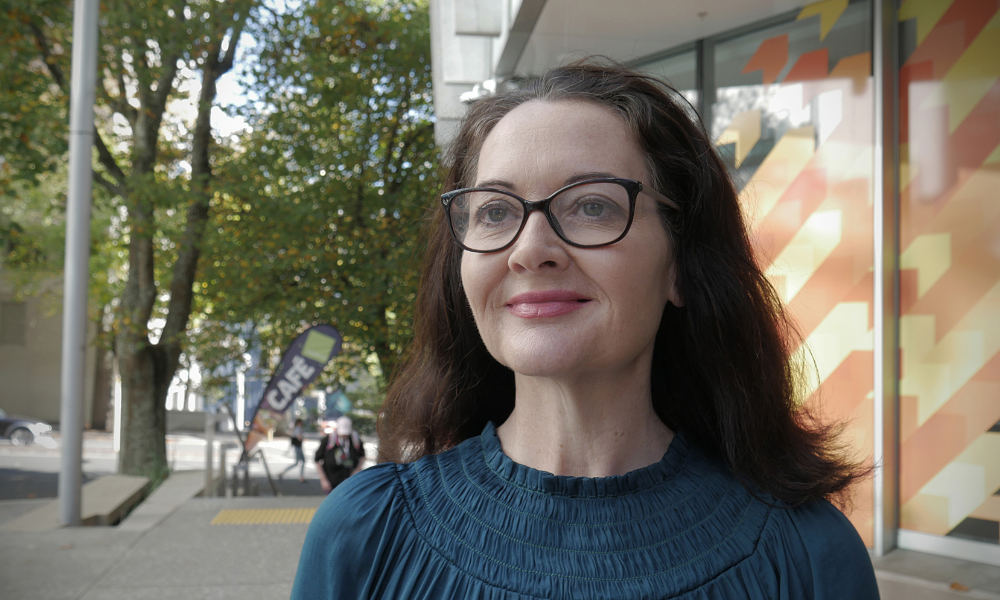
'It's rich when organisations claim to embrace diversity but when you look in certain groupings, there’s little diversity' Academic

As HR professionals have been turning a focus on diversity and inclusion within their organisations, it’s now time to angle the lens on the HR function itself, says one academic, who sees great potential for growth of DEI within this space.
It’s important that organisations emphasising their commitment to diversity can illustrate that it’s valued in all areas, says Candice Harris, professor at Auckland University of Technology (AUT) Business School.
“It is key for HR departments to incorporate and be comfortable with diverse voices and diverse perspectives.
“It’s a bit rich when you see organisations saying ‘We really embrace diversity’ and then you look in certain occupational groupings within the organisation to see in fact there’s very little diversity.”
At AUT diversity is being more widely represented throughout the HR and employment relations courses, Harris notes, including with more Māori and Pacifica students heading through to postgraduate level qualifications.
In terms of HR functions looking to broaden diversity in Aotearoa, being open to a te ao Māori (Māori world view) approach would be a good starting point, she says, by incorporating te ao Māori and Mātauranga Māori concepts into HR policies and practices.
“Encouraging more Māori and Pacific people in your HR teams is also key,” says Harris.
“If an organisation has growing numbers of Māori and Pacifica staff but has an HR team that knows little about them, then there could be problems when it comes to designing, implementing and reviewing fit for purpose HR practices. It might also create a problem with employer brand and recruiting if potential candidates struggle to see how an organisation fits with their values.”
She notes too that 37% of those studying a Year 2 HRM course are male and that postgraduate courses in HR and employment relations also include a number of students from overseas.
“We are seeing HR appeals to those from a wide range of cultural backgrounds too – it attracts a wide church.”
Harris points to an aspect of the university’s diversity studies to illustrate the extent to which HR can look to be more inclusive.
“We talk about intersectionality and how it’s important to see people as a representation of many different things including age, ethnicity, gender, culture, sexuality, and ability. Strong HR departments would reflect a range of perspectives and voices that can speak to the various experiences that diverse employee groups actually have.”
As organisations look to further enhance EVP and employee experience, the importance of this is heightened, she says.
Harris notes a topic that’s newer to the discussion in HR and which is helping bring a wider lens, is that of neurodivergency.
“It’s important that we are talking about this more in HR,” she says.
“Forms of neurodiversity include autistic spectrum disorder, attention deficit hyperactivity disorder (ADHD), dyslexia, dyspraxia, and dyscalculia. Further research is required to consider how talent is conceptualised when considering different employee talent pools such as the neurodiverse. There is a pressing need to understand what works to remove structural barriers to attract and support neurominorities into and in work.”
While in an ideal world it would be valuable to have someone on the team who can draw directly on their own personal experiences in this, says Harris, for those HR functions that don’t, the key initially would be growing understanding of neurodiversity. That should then expand to looking at learning and development opportunities to make sure a diversity of learning techniques is incorporated, as well as providing managers with training around the behavioural traits and forms of support required by neurodiverse staff.
Another big consideration for HR on this is in recruitment and understanding how neurodiverse people might fare in an organisation’s usual recruitment style, says Harris.
“Panel interviews can be a bit overwhelming for some, for example, and also perhaps a neurodiverse candidate might answer a question directly without thinking they need to expand on it.
“There’s a range of factors to be considered in neurodiversity so what might work for someone who’s dyslexic may not work for someone who has dyscalculia, but it’s important to consider the strengths neurodiverse people bring. The creativity, empathy, problem-solving and analytical thinking can be really valuable to an organisation.”